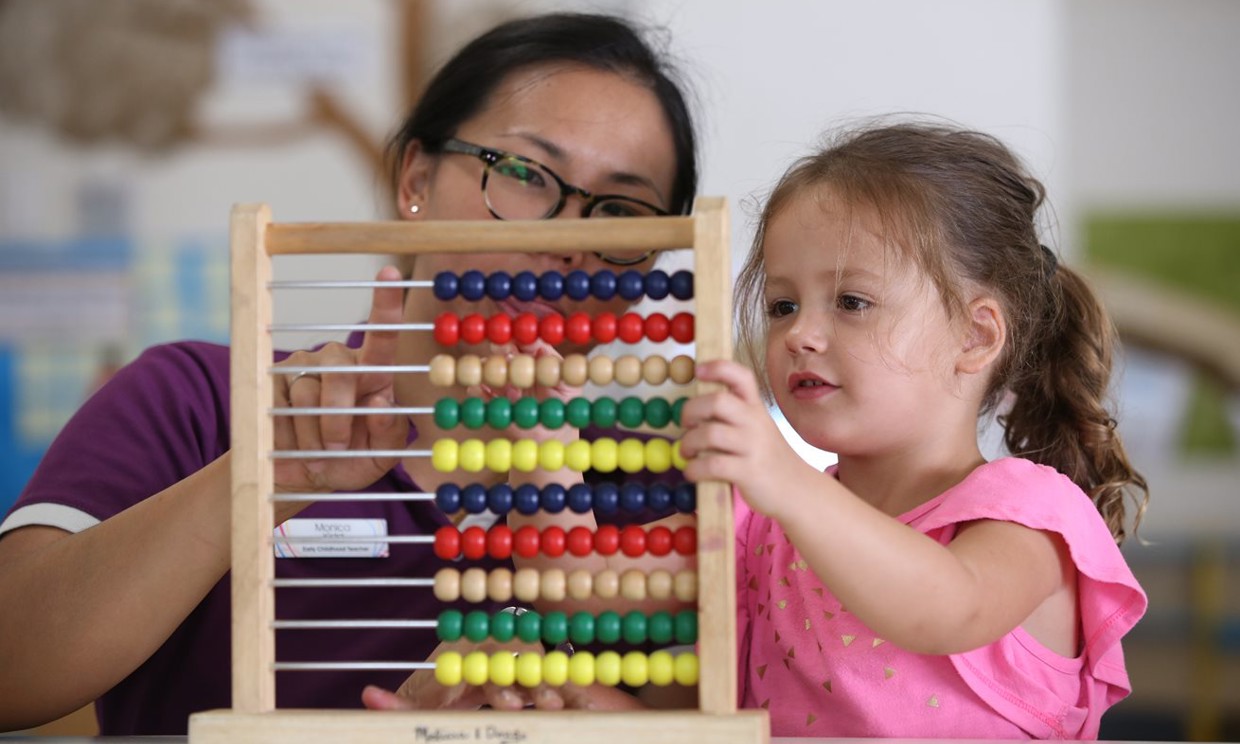Introducing maths concepts in early education pays dividends for a child’s school readiness and life, says Goodstart’s early childhood educator Dr Lisa Palethorpe.
Research shows that a child’s informal number sense when they enter school provides a foundation for school maths achievement and strongly predicts maths competence later in school.
“A child’s number sense isn’t necessarily marked by confidence and proficiency in counting one to 10, rather if they understand how big or small the numbers are and what a number represents,” Dr Palethorpe said.
Dr Palethorpe said Goodstart’s kindergarten/preschool teachers used structured play-based learning and intentional teaching opportunities through children’s play to introduce children to these early maths concepts.
“Children early in life are able to understand the notions of time and measurement, cause and effect, identify number patterns, and recognise different shapes,” Dr Palethorpe said.
“Through play we can foster and develop a child’s informal understanding of numbers and other dimensions of maths, such as measurement and patterns.”
Dr Palethorpe said fun and stimulating play provided a foundation for life-long learners, with solving mathematic problems being an essential life skill.
“Research shows that an engaging and encouraging climate when children are first introduced to maths, develops confidence in their ability to understand and use maths,” Dr Palethorpe said.
“We’re passionate about developing a child’s confidence to create a smooth transition to school before they start formally learning and start applying these concepts.”
The process of baking a cake, from measuring ingredients to temperature and time, was one-way early maths concepts of measurement are introduced to Goodstart’s kindergarten/preschool children.
Other dimensions of maths introduced through play-based learning, include
- Number sense e.g. the numeral 2 represents two objects, which is greater than 1 and less than 2. Educators introduce activities that involve games that use a number line for counting to help children master and integrate understanding about numbers.
- Measurement e.g. size, distance, amount. Educators develop a child’s abilities to measure time, temperature, length and mass. Children can also learn about specific tools that may be used to measure and how much by involving children in activities such as baking or juicing an orange.
- Geometry – Educators can develop a child’s ability to analyse and construct shapes and understand their defining features. Learning experiences can help children understand that shapes represent objects in the world, have attributes, and can be deconstructed and constructed into other shapes and structures.
- Patterns – Educators introduce children to repeating patterns and growing patterns that increase or decrease by constant amounts. Counting is an example of a pattern as the sequence grows by one each time. Educators encourage children to create patterns and to explain and describe those patterns. Children can also hear and repeat those patterns through movement and music making.
- Data management – Educators observe how children sort and interpret information and introduce a grid for organising the information to create a concrete graph.
- Representation – Educators introduce children to numerals, symbolic representations for numbers, and encourage children to represent their age for example by encouraging them to hold up the number of fingers that represent their age. Children often initiate drawing representations of ‘how many’ before they use actual numbers.
Educators use a range of maths assessment techniques to determine a baseline for a child’s maths literacy level to help inform decisions about what to teach and how to monitor progress. This ensures children are equipped with early maths concepts ahead of their transition to school.


